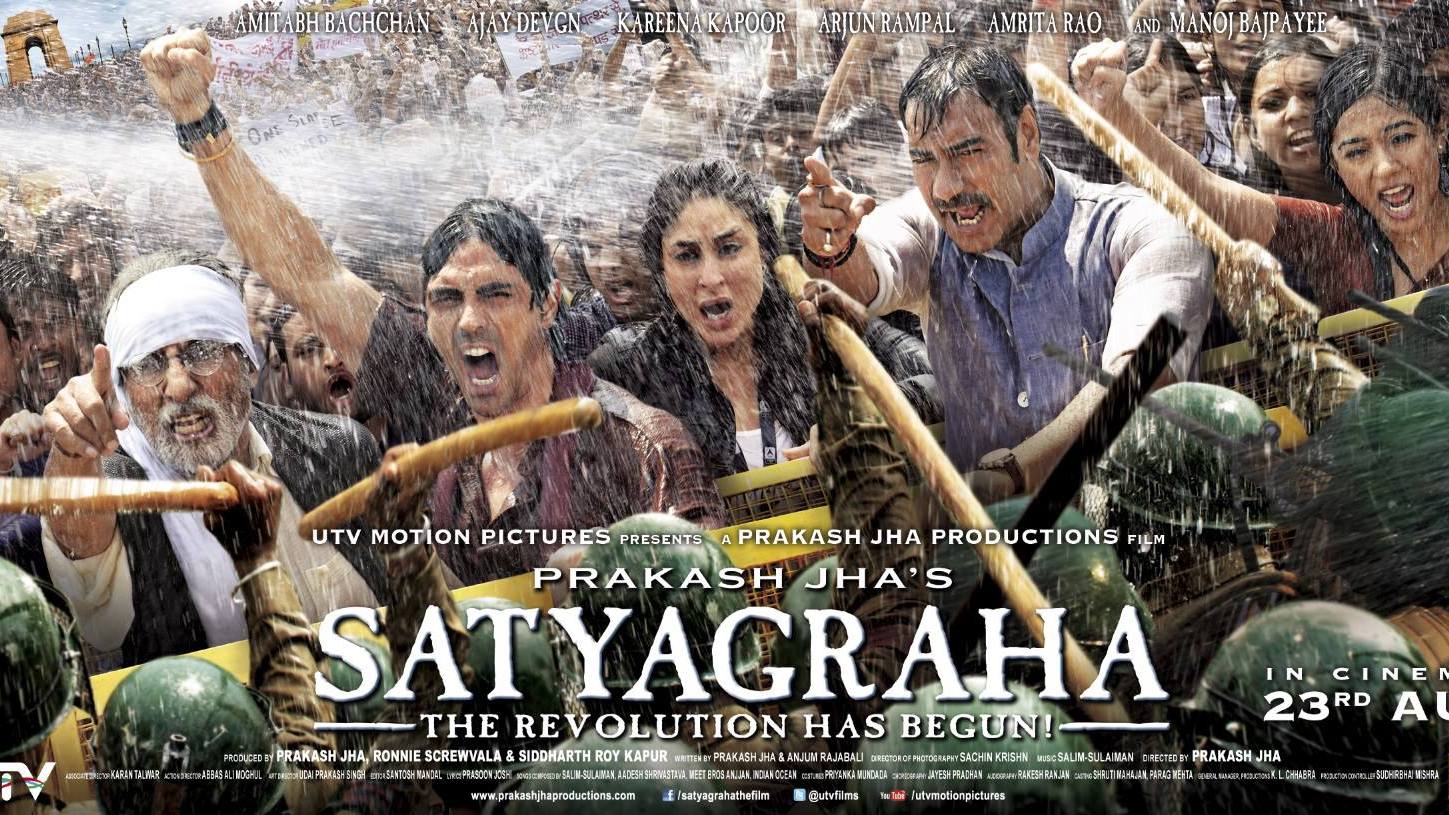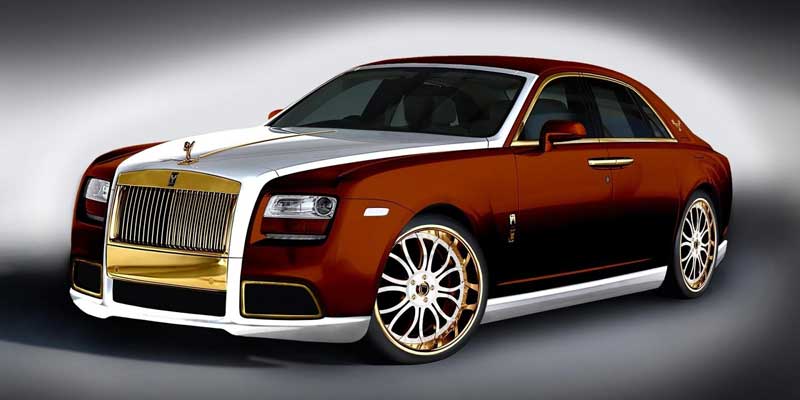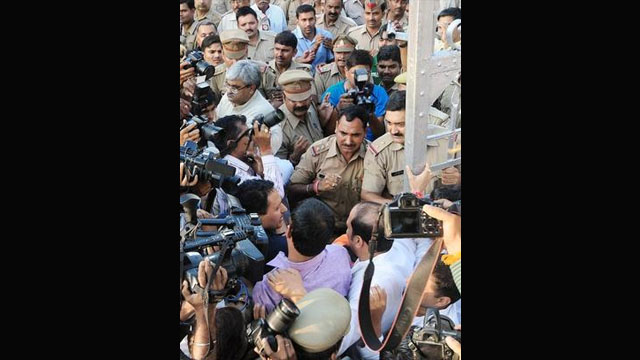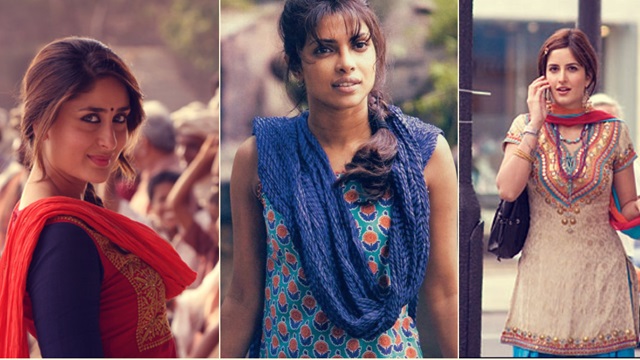Perhaps this philosophical oscillation has much to do with Prakash Jha’s vague notion of politics, where in film after film he raises important questions but settles for easy answers.
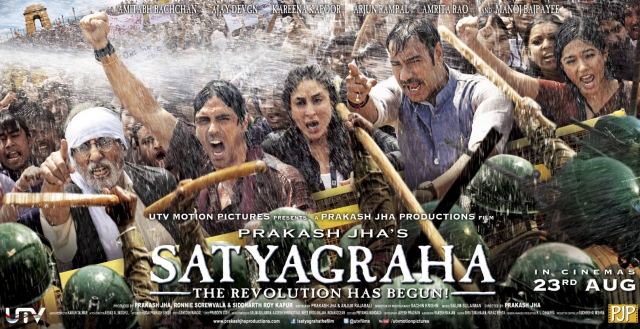
Director: Prakash Jha
Cast: Ajay Devgn, Amitabh Bachchan, Kareena Kapoor Khan and Arjun Rampal
Rating: 1/5
When you are unclear about why you are making a film, the confusion tends to spill out somehow.
The idea of a modern day satyagraha against corruption sounds engrossing — particularly when
inspired by real life incidents from merely two years ago — however, when the director has nothing
new to say or offer to the narrative against dishonesty, the premise has no way of sustaining an
audience’s interest in the film.
An idealistic man Dwarka Anand aka ‘Daduji’(Amitabh Bachchan) is forced to take on the system’s
wrath once he raises his voice against corruption, following his equally moralistic son, Akhilesh’s
death under suspect circumstances. He turns into a local Mahatma Gandhi, courting arrest and
rousing a social movement against corruption. Manav (Ajay Devgn) is Akhilesh’s corrupt corporatetype buddy who in Daduji finds a father figure and decides to follow the right path. Yasmin Ahmed
(Kareena Kapoor Khan), a big shot journalist, who along with Arjun (Arjun Rampal), the youth leader,
help shape this movement, culminating in the final act of the film — perhaps the most absurd kind
of kraanti. It seemed more like an exercise in self aggrandizement than a people’s struggle. Which
self respecting activist group hangs gigantic posters of only their leaders as if it were a popularity
contest? I particularly couldn’t understand how Yasmin made it to these posters. Wasn’t she
supposed to be an objective, independent reporter?
Ostensibly an ideological film, the characters are all allegedly ‘Gandhian’, yet they seem to have
no clue as to what that means. They swing between violence and non-violence as per their
convenience, and even a gravely ailing Daduji’s rousing speech about peace fails completely to
register any change. Ajay Devgn promptly goes and lands a deafening slap on Manoj Bajpayee’s
cheek in the very next scene!
Perhaps this philosophical oscillation has much to do with Prakash Jha’s vague notion of politics,
where in film after film he raises important questions but settles for easy answers. He never seems
to want to push his questions beyond a point and routinely ends his film with a speech that seems
like a paraphrasing of a school level civics book.
Like all other Prakash Jha films Satyagraha too is basically about relationships. The answer to all
problems, for him is an appeal to the essential humanity of each person, without taking political
sides. Family and friends is what matters and it is these relationships that he affirms his faith in, not
in any idea, system or programme. With the effect that his films tend to look exactly the same (no
thanks to his obsession with casting the same actors repeatedly), where the core issue might be
different, but the final resolution will always be one based on familial affections and love.
Nearly 150 minutes long, the film is exhausting and completely predictable, utilizing every cliché
in Bollywood’s book on political dramas. The music is particularly appalling, and the never ending
background score of Janta rocks! , or Raghupati raghav raja ram are a real pain.
By the end of the film, the filmmaker seems to lose all sense of logic and rationality, turning
the small town of Ambikapur, where the film is set, into a full blown war zone with makeshift
fortifications and ammunition bearing goons. All female characters seem to disappear from the film
(I mean all- there is no woman in sight) by the last scene, where the mob must decide a corrupt
politician’s fate.
Quite troubling, the film was unsettling for the way it reduced an interesting political idea to a
hollow, superficial drama without any conviction.

